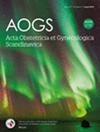The impact of local symptoms on health-related quality of life in vulvar cancer survivors—A nationwide prospective study
Abstract
Introduction
Vulvar cancer may cause serious local symptoms that may impact negatively on the woman's health-related quality of life (HRQOL). However, knowledge about the prevalence of vulvar and lymphedema symptoms at diagnosis and during follow-up is limited. The aim of this study was to evaluate the longitudinal development of vulvar and lymphedema symptoms as well as the trajectory of HRQOL in women with vulvar cancer. Furthermore, associations between vulvar symptoms and HRQOL were investigated.
Material and Methods
In this nationwide prospective cohort study, women completed validated patient-reported outcome measures; the EORTC-QLQ C30 and the EORTC-QLQ-VU34 at diagnosis, three, and 12 months post-treatment. Mean scores of symptom- and functioning scales were calculated over time. Heatmaps were used to visualize proportional changes in the prevalence of symptoms at baseline and 12 months after treatment. Linear mixed-effects models with patient-specific random intercepts were specified to estimate changes in mean scores of HRQOL over time. Additionally, adjusted linear mixed-effects models were applied to investigate the effect of the most prevalent vulvar symptom on HRQOL. The study has been registered at ClinicalTrials.gov (NCT 04152512).
Results
Between 2019 and 2021, 153 women consented to participate in the study, and 140 (92%) completed the patient-reported outcome measures at least once. In total, 105 (69%) completed the patient-reported outcome measures at all three time points. The most prevalent reported symptom was itchy, irritated skin in the vulva, which decreased from 82% at diagnosis to 56% 12 months after treatment. All vulvar symptoms, except narrowing of the vaginal entrance, improved over time but persisted in large proportions of the women. Women with severe vulvar symptoms reported a significant decline in HRQOL. A deterioration of leg swelling symptoms was reported by 33% of the women. Emotional-, role-, social-, and cognitive functioning, global and mental health improved significantly after treatment.
Conclusion
Local vulvar symptoms were highly prevalent at diagnosis; however, as most aspects of HRQOL, they improved significantly during the first year of follow-up. Severe vulvar symptoms were associated with impaired HRQOL. Symptoms of leg lymphedema increased after treatment. © 2025 The Authors. Acta Obstetricia et Gynecologica Scandinavica published by John Wiley & Sons Ltd on behalf of Nordic Federation of Societies of Obstetrics and Gynecology (NFOG).




 求助内容:
求助内容: 应助结果提醒方式:
应助结果提醒方式:


